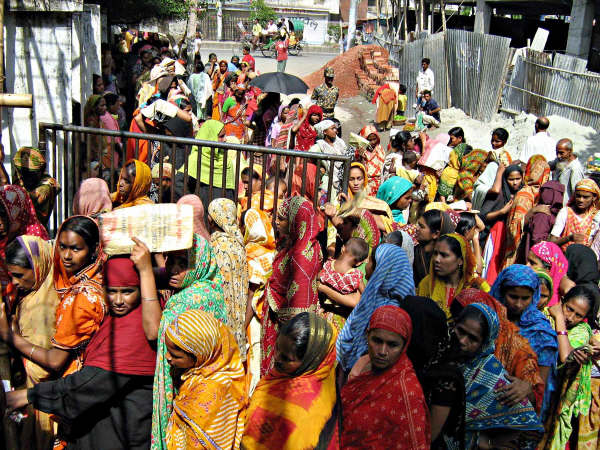“The health community has been late in coming to the issue because we have enough on our plates,” said Diarmid Campbell-Lendrum with WHO’s public health and environment department, speaking about health workers, policymakers and donors.
“Climate change was seen as low-down on the list of priorities given that we have an agenda that has not been completely addressed - death of under-five children, for example. We have not fixed that problem. When presented with the climate change concern…that [was seen] as just another competing agenda.”
WHO Director-General Margaret Chan has said climate change “may turn out to be the most ominous struggle” for the health field in the coming years.
Though relatively scarce and mostly regional in scope, medical studies have linked warming temperatures to a possible increase in diarrhoeal diseases, malnutrition and malaria and a degradation of food safety.
But environmental health threats have largely been ineffective in mobilizing health workers and donors to address climate change, said Campbell-Lendrum. “The way to get engagement is not to go and say 1,000 deaths are caused by malaria and that climate change will add 20 percent in 20 years time. You would get a shrug of the shoulder.”
Rather, a message that has encouraged more from the health arena to address climate change has been: “If we act to improve our health systems now, then we are in a better position to deal with climate change,” he said.
Mutual benefits
Health advocates have begun to realize the importance of addressing the medical impacts of climate change, said Campbell-Lendrum.
“The alternative is...to say either that adaptation [to climate change] is impossible or assume that public health services will absorb the challenge without us [policymakers, donors] having to make a specific effort – neither of which is true. I think the health community has realized that climate change is not a distraction from the public health agenda, but rather another reason for what we do,” Campbell-Lendrum told IRIN.
A May 2008 UN resolution urged member states to “develop health measures and integrate them into plans for adaptation to climate change”. While the UN has estimated it can cost up to US$12 billion a year as of 2030 to face the health consequences of climate change, it has also acknowledged in a recent work plan “important gaps in our knowledge” on climate-related health risks.
A 2009 WHO study judged research still “weak”, which means that well-intentioned adaptation projects could actually become “health-damaging maladaptations” if not evaluated from a health angle.
WHO’s ‘Protecting Health from Climate Change’ report recommended developing software to quantify climate-sensitive diseases; honing heat-health warning systems – already under development in Europe following a deadly 2003 heat wave; deciding who pays to treat and prevent climate-sensitive diseases – meteorological versus health services; and studying how climate change might affect health interventions.
Donors supporting WHO’s programme on climate change and health include the Spanish and UK governments. Germany has supported Central Asian governments adapt their health systems to climate change. Campbell-Lendrum said WHO is awaiting confirmation on a $5-million grant from Global Environmental Facility to fund health reforms in seven countries.
While climate change increases the urgency of such reforms, Campbell-Lendrum said, improving health is a good idea with or without climate change. “It should just be a reminder of an unfinished agenda.”
pt/np
This article was produced by IRIN News while it was part of the United Nations Office for the Coordination of Humanitarian Affairs. Please send queries on copyright or liability to the UN. For more information: https://shop.un.org/rights-permissions





